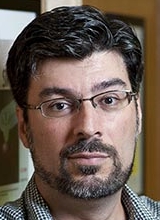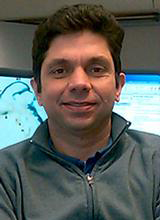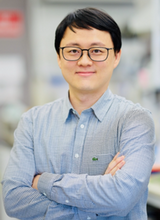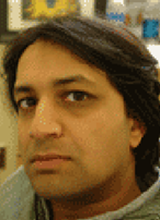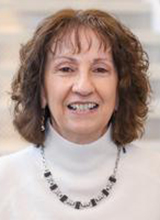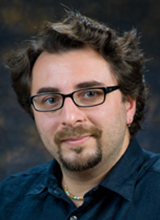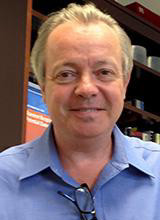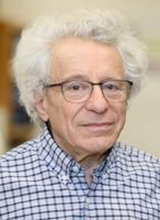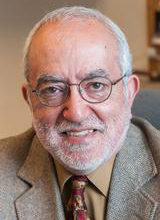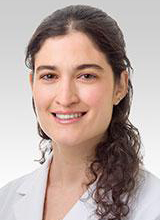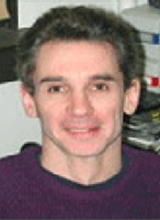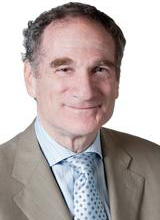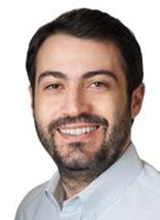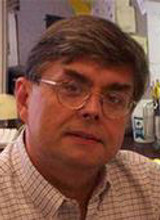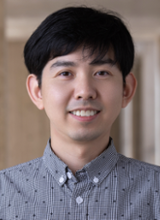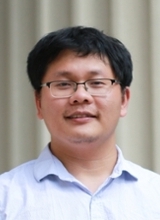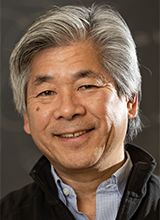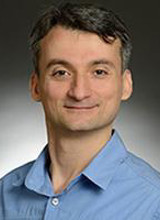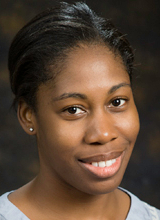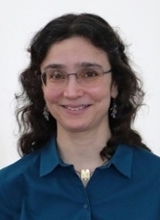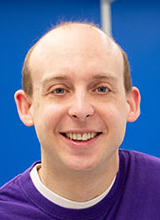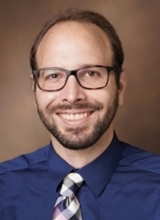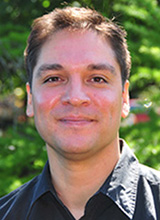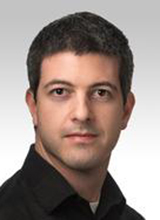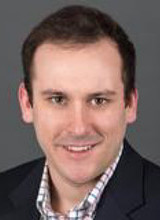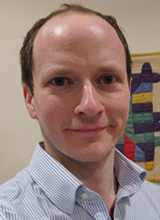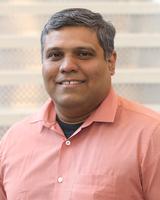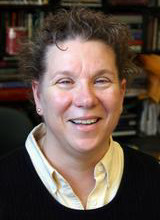PREP Faculty Directory
Get to know the Northwestern University PREP faculty by searching our directory below. Browse, filter the faculty list or search by keyword to learn more.
Associate Professor of Physical Therapy and Human Movement Sciences
I am interested in understanding the mechanisms underlying movement impairments after neural injury or disease and how the nervous system adapts... Read Acosta's bio
Professor, Neurosurgery
The focus of my laboratory research is to elucidate the mechanisms of therapeutic resistance in brain tumor... Read Ahmed's bio
Assistant Professor of Psychiatry & Behavioral Sciences
The Precision Neuromodulation Lab investigates how macroscopic neural communications in the human brain encode cognition and emotions in wellness and disorders... Read Alekseichuk's bio
Erastus Otis Haven Professor of Chemical and Biological Engineering
Neurodegenerative diseases are becoming one of the major causes of death in developed nations. Many of these diseases are strongly associated with aging, prompting the question of which are the changes occurring during aging that have such a large... Read Amaral's bio
Assistant Professor, Pharmacology
Our group is interested in unraveling the molecular mechanisms by which post-transcriptional modifications of RNA regulate mRNA processing, stability, and translation and how this interplay affects cell fate decisions and the cellular response to str... Read Arango's bio
Professor of Neurology
Dysfunctional dopamine (DA) signaling has been associated with a broad spectrum of neuropsychiatric disorders, prompting investigations into how midbrain DA neuron heterogeneity may underpin this variety of behavioral symptoms... Read Awatramani's bio
Assistant Professor of Psychiatry & Behavioral Sciences
At the Health Equity for Advancing Research and Technology using Genomic Neuroscience (HEART-GeN) lab, we aim to improve therapeutics for underrepresented communities by investigating the influence of genetic ancestry on molecular signatures in the b... Read Benjamin's bio
Professor of Neuroscience
Our research is focused on the basal ganglia, a group of subcortical brain nuclei critical for the motivation, selection, and execution of action sequences and the primary site of dysfunction in psychomotor disorders including Parkinson’s disea... Read Bevan's bio
Assistant Professor, Neurology
Our laboratory focuses on understanding how calcineurin, the master regulator of Ca2+ signaling, orchestrates cellular responses in neurons and astrocytes, particularly during memory and learning... Read Caraveo Piso's bio
Assistant Professor of Pathology
Understanding the neuronal environment is crucial for addressing neurodegenerative diseases, akin to examining withering trees in a garden... Read Choi's bio
Professor, Microbiology-Immunology
Professor of Neuroscience
Research in our laboratory is directed at understanding the fundamental mechanisms of synaptic communication and how these processes go wrong in neurodevelopmental and neuropsychiatric disorders... Read Contractor's bio
Professor of Neurobiology
The neuronal activity underlying mammalian spatial navigation represents one of the most striking examples of behavioral correlation in the brain. Dr... Read Dombeck's bio
Assistant Professor, Biochemistry and Molecular Genetics
My lab studies lung cancer. I would be interested in hosting a student as a PREP faculty... Read Eichner's bio
Associate Professor of Cell and Developmental Biology
The long-term goal of my research is to understand, from a cell and molecular biological perspective, how mammalian central neurons establish and maintain specific synaptic connections... Read Ferreira's bio
Associate Professor of Neurobiology
Our long term goal is to understand how sensory stimuli are used to build an internal representation of the physical world, and how this representation is in turn processed into our actions and behaviors... Read Gallio's bio
Assistant Professor, Biochemistry and Molecular Genetics
We study molecular and cellular mechanisms of brain metastasis in cancer patients using long read single cell sequencing and bioinformatic approaches. We are also interested in analyzing mosaic mutations and splicing abnormalities in human brains... Read Gao's bio
Professor, Anesthesiology, Neuroscience and Neurology
We study the cochlea develops, how it generates its specialized sensory and supporting cell types, and how it is innervated and communicates with the brain... Read Garcia-Anoveros' bio
Professor of Cell and Developmental Biology
We are interested in mechanisms of neuronal growth and polarity, We are using Drosophila melanogaster neurons in vivo and in culture and work using live-cell imaging, optogenetics, Drosophilas genetics to address these questions... Read Gelfand's bio
Research Professor of Mesulam Center for Cognitive Neurology and Alzheimer's Disease
Our laboratory pursues several overlapping areas of research in the human brain, with additional investigations centered on non-human primate models, rodent models and cell culture systems... Read Geula's bio
Professor of Medicine
We have an active collaboration with Dr. Crismita Dmello (Dept Neurosurgery) examining the role of CHEK2 in mediating sensitivity to immunotherapy for brain tumors... Read Godley's bio
Associate Professor of Pathology
Stillbirth, adverse pregnancy outcomes, imaging machine learning, upskilling, infection in pregnancy, developmental origins of health and disease... Read Goldstein's bio
Associate Professor, Microbiology-Immunology
We study how human Kaposi's sarcoma-associated herpesviruses causes cancers derived from B cells and endothelial cells... Read Gottwein's bio
Assistant Professor of Neuroscience
The main goal of our lab is to understand how neural circuits assemble during development and disease. We are particularly interested on the genetic causes and cellular mechanisms related to circuit defects in autism spectrum disorder and epilepsy... Read Guemez-Gamboa's bio
Assistant Professor, Medicine (Pulmonary and Critical Care)
The Han lab studies the mechanisms of how lung epithelial cells repair after injury and how aberrant repair occurs resulting in fibrosis... Read Han's bio
Professor of Biomedical Engineering and Mechanical Engineering
We are interested in the neuroscience of active sensing behaviors and particularly the sense of touch. We use the rodent whisker (vibrissal) system as a model to gain insight into closed loop sensorimotor control... Read Hartmann's bio
Professor of Neuroscience
Electrophysiology and computational modeling of spinal sensorimotor neurons and... Read Heckman's bio
Assistant Professor, Surgery
We investigate the role of autonomous nervous system in vascular development and regeneration in various vascular diseases, such as aneurysm, calcification and atherosclerosis... Read Jiang's bio
Associate Professor of Pharmacology
Research in my laboratory is focused on identifying genetic factors that contribute to severe childhood epilepsies and neurodevelopmental disorders... Read Kearney's bio
Davee Professor of Neurology
Our research has focused extensively on the regulation of gene expression by stem/progenitor cells and their differentiated progeny... Read Kessler's bio
Assistant Professor of Neurology
My laboratory harnesses the power of human pluripotent stem cells to study neuronal development as well as to understand how neuronal function is impaired as a result of injury or disease... Read Kiskinis' bio
Professor, Medicine
My laboratory is recognized for studies highlighting the role of a family of transcription factors termed Forkhead/FOX in diverse biological processes... Read Kume's bio
Professor and Chair, Department of Microbiology-Immunology
Roles of DNA damage repair pathways in cervical cancers caused by human papillomavirus... Read Laimins' bio
Associate Professor of Biochemistry and Molecular Genetics
We are investigating the role of DNA topoisomerase I (TOP1) in neuroinflammatory diseases, focusing on its influence on DNA replication, transcription, and repair in the context of inflammation-driven neurological dysfunction... Read Lauberth's bio
Assistant Professor, Ophthalmology
Our research focuses on innate immune cells and how they regulate homeostasis and disease in the retina and during vision. We are interested in their functions during retinal inflammation, macular degeneration, and diabetic retinopathy... Read Lavine's bio
Professor, Dermatology, Microbiology & Immunology
In tuberous sclerosis complex (TSC), TSC-associated neuropsychiatric disorders are the most challenging aspect of disease. Our approach has been to design therapeutics that target mutant cells by means of the adaptive immune response... Read Le Poole's bio
Associate Professor of Neuroscience and Psychiatry & Behavioral Science
The Lerner Lab studies the neural circuit basis of motivation, reward learning, and habit formation. We are particularly interested in how individual variations in dopamine circuit function relate to differences in behavior and neuropsychiatric... Read Lerner's bio
Assistant Professor of Psychiatry and Behavioral Sciences
My lab utilizes cutting-edge circuit and systems approaches to study how neuropeptidergic circuits mediate valence processing and regulate motivated behaviors... Read Li's bio
Associate Professor, Biochemistry and Molecular Genetics
The Li lab studies prion biology. Prion proteins are unique in their ability to exist in multiple stable conformations, at least one of which is infectious... Read Li's bio
Associate Professor, Pharmacology
Our passion is to elucidate fundamental cancer biology and to prevent and cure cancer with innovative therapeutics... Read Liu's bio
Assistant Professor of Biochemistry and Molecular Genetics
The research focus of my lab is on developing and applying computational and high-throughput experimental methods in epigenomics to understand the gene regulation of non-coding genetic variants in different pathological conditions, including brain ca... Read Liu's bio
Professor of Neuroscience
My interest is focused on the hippocampus, which is an area of the brain involved in higher cognitive functions, and is often the target of neurological illnesses like epilepsy, schizophrenia and Alzheimer’s disease... Read Maccaferri's bio
Professor of Medicine - Infectious Disease
One focus of the research in the lab is the impact of HIV in the CNS, including HIV persistance mechanisms and consequences (such as HIV-related neurocognitive dysfunction)... Read Martinelli's bio
Professor, Medicine
Our lab is a cancer biology lab, we focus on metabolic features of drug resistant... Read Matei's bio
Professor of Mechanical Engineering
Professor MacIver believes that the body’s mechanical intelligence can be just as important, if not more important, than what’s going on in your head... Read McIver's bio
Assistant Professor of Neurobiology
The patterns of muscle activation that drive movement reflect an interplay between neuronal circuits in the spinal cord and an array of motor system regions... Read Miri's bio
Assistant Professor, Neurosurgery
The Miska Laboratory investigates how metabolism influences immune responses against brain tumors, aiming to modify these responses to inhibit tumor growth and improve patient outcomes... Read Miska's bio
Associate Professor, Cell and Developmental Biology
While our work is not specifically focused on neuroscience, the formation and function of motile cilia is important in lots of contexts including in the ventricles of the brain where they drive the flow of cerebral spinal fluid... Read Mitchell's bio
Bill and Gayle Cook Professor of Biology
Human lifespan has increased dramatically, and with this is the increased risk for dementia and neurodegenerative diseases... Read Morimoto's bio
Associate Professor and Charles Deering McCormick Professor of Teaching Excellence, Communication Sciences and Disorders
My research focuses on understanding typical reading and language development as well as developmental and learning disabilities, including dyslexia, developmental language disorder, and autism spectrum disorders... Read Norton's bio
Associate Professor of Psychology
My research program uses neuroscientific methods to examine order and disorder in the emotional brain... Read Nusslock's bio
Professor of Neurology
The long-term goal of my laboratory is to understand the cellular basis of neurodegeneration. We are testing the idea that neurodegeneration results from derangements in relatively few but strategic sub-cellular pathways... Read Opal's bio
Professor, Cell Development Biology
We are studying embryonic development by using zebrafish as the animal model. We are studying pattern formation and somite segmentation (precursors of the vertebral column)... Read Özbudak's bio
Assistant Professor of Pharmacology
Our laboratory studies the molecular basis of Parkinson's disease (PD) with a focus on the cellular and molecular pathways dysregulated by PD-linked genes such as α-synuclein and LRRK2... Read Parisiadou's bio
Professor, Nephrology and Hypertension
The Park lab studies how stem/progenitor cells differentiate into specialized cell types, using the mouse kidney as our model system... Read Park's bio
Assistant Professor of Psychiatry and Behavioral Sciences
Our goal is to understand how neuroimmune signaling and social factors impact neural circuits and behavior, and if we can harness immune mechanisms to reprogram circuits to treat neuropsychiatric disorders... Read Patel's bio
Associate Professor, Pharmacology
We work in under-represented populations (African Americans and Puerto Ricans) to identify genetic biomarkers of drug response and disease susceptibility (cardiovascular/clotting diseases)... Read Perera's bio
Professor of Biomedical Engineering
Research in our group focuses on understanding the neural and biomechanical factors involved in the normal control of multi-joint movement and posture and how these factors are modified following neuromotor pathologies such as stroke and spinal cord ... Read Perreault's bio
Associate Professor, Molecular Biosciences
ATP-Binding Cassette (ABC) transporters work as molecular pumps to transport substrates across cellular membranes... Read Pinkett's bio
Professor of Pharmacology
Ca2+ is a ubiquitous intracellular signaling messenger regulating a wide range of functions including enzyme activation, gene expression, and neurotransmitter release... Read Prakriya's bio
Professor of Neurobiology
In the Raman lab, we study specializations of ion channels and synaptic physiology that permit cerebellar neurons—Purkinje neurons, granule cells, inhibitory interneurons, and output neurons of the cerebellar nuclei—to facilitate coordina... Read Raman's bio
Professor of Medicine, Medicine (Pulmonary and Critical Care)
Assistant Professor of Pharmacology
We develop high-throughput methods for protein biophysics and protein design, with a focus on protein therapeutics... Read Rocklin's bio
Assistant Professor of Psychiatry and Behavioral Sciences
We study the neural dynamics of stress and aversive learning, how these processes are modulated by the opioid system, and how they interact with the pursuit of rewards... Read Rosas-Vidal's bio
Associate Professor of Communication Sciences and Disorders
Dr. Sanchez’s laboratory investigates the development of time-coding mechanisms in the auditory brainstem using electrophysiological and anatomical approaches. His primary interests are in synaptic transmission and ion channel function... Read Sanchez's bio
Assistant Professor, Pharmacology
My lab is interested in understanding the molecular basis of protein folding. We use structural methods such as cryoEM to obtain high resolution information on the proteins that ensure homeostasis in cells... Read Sangwon's bio
Associate Professor, Department of Neurology
Savas joined the faculty of Northwestern University, Feinberg School of Medicine in 2015, where he is currently an Associate Professor of Neurology... Read Savas' bio
Associate Professor of Neurobiology
Our lab studies the role of light in behavior by linking the cellular function of cells within the retina to their downstream circuits in the brain and output behavior. To do this, we examine the role of RGC subtypes in specific visual functions... Read Schmidt's bio
Associate Professor of Ophthalmologyy
Research in our lab focuses on the circuit mechanisms underlying sensory computation. We use the mouse retina as a model system because it allows us to stimulate the circuit precisely with its natural input, patterns of light, and record its natural... Read Schwartz's bio
Associate Professor, Surgery
My laboratory investigates the molecular mechanisms leading to long-term neurocognitive morbidity after trauma brain injury... Read Schwulst's bio
Assistant Professor, Pharmacology
We use genetic, molecular, and microscopy approaches to study how brains form and are affected by neurodevelopmental disease... Read Smith's bio
Professor and Vice Chair, Department of Pharmacology
We study the molecular and physiological properties of receptor proteins that underlie excitatory synaptic transmission in the mammalian brain... Read Swanson's bio
Assistant Professor, Biochemistry and Molecular Genetics
Our behaviors are elicited by external stimuli as well as our internal state. Latter allows us to synchronize our actions with our needs, and we will forage more vigorously, and respond to food stimuli more vigorously when we’re hungry... Read Titos Vivancos' bio
Professor of Biomedical Engineering
We examine the neural control of movement, focusing on the role of spinal circuitry. We use an interdisciplinary approach in this research, using a combination of behavioral, biomechanical, and neurophysiological techniques... Read Tresch's bio
Assistant Professor of Cell and Developmental Biology
Our lab is primarily focused on cell cycle, cell proliferation, and cancer. Within Neuroscience, we are interested in two broad areas. One of them is brain development... Read Varma's bio
Assistant Professor, Cell and Developmental Biology
Gas diffusion in the mammalian lung takes place in the alveoli, where a thin epithelium is surrounded by a capillary network. Traditionally, these alveolar capillaries were considered homogeneous until Dr... Read Vila Ellis' bio
Associate Professor, Medicine
My lab uses genomic and computational approaches to study the gene regulatory network of macrophages across health and disease. We do both wet and dry lab experiments that range from basic to translational research... Read Winter's bio
Professor, Radiation Oncology
We are currently studying radiation effects on the brain, particularly vascular development that is stimulated by low dose radiation exposure... Read Woloschak's bio
Professor of Urology
We just began collaborations with neuroscience laboratories to study neurodegenerative diseases exploring a new aspect of disease mechanism and potential treatment, based on unexpected findings in our cancer immunology research... Read Wu's bio
Associate Professor, Urology
Associate Professor, Microbiology-Immunology
Research in the Yap Laboratory focuses on understanding the fundamental mechanisms of mRNA translation and the actions of ribosome-associated factors and ribosome-targeting antibiotics in methicillin-resistant Staphylococcus aureus (MRSA)... Read Yap's bio
Professor, Biomedical Engineering
Hao F. Zhang is a Professor of Biomedical Engineering and Ophthalmology (by courtesy) at Northwestern University... Read Zhang's bio



